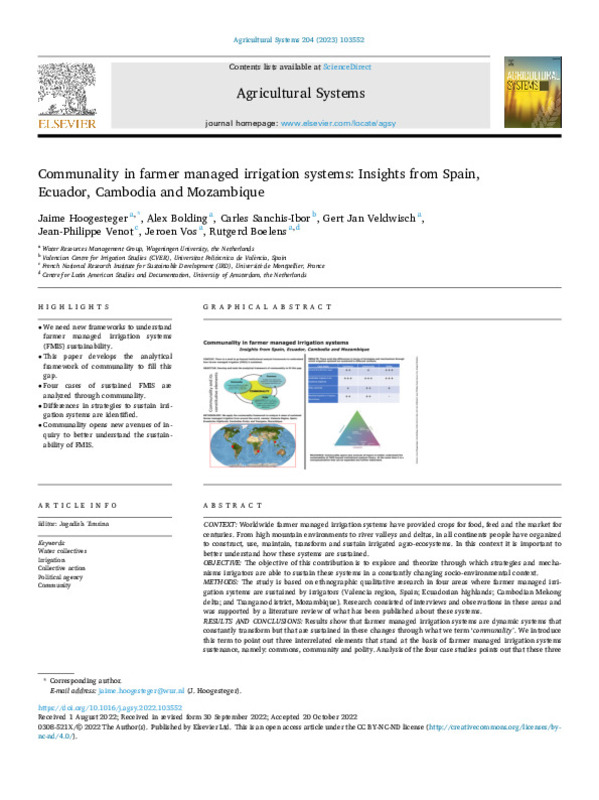JavaScript is disabled for your browser. Some features of this site may not work without it.
Buscar en RiuNet
Listar
Mi cuenta
Estadísticas
Ayuda RiuNet
Admin. UPV
Communality in farmer managed irrigation systems: Insights from Spain, Ecuador, Cambodia and Mozambique
Mostrar el registro completo del ítem
Hoogesteger, J.; Bolding, A.; Sanchis Ibor, C.; Veldwisch, GJ.; Venot, J.; Vos, J.; Boelens, R. (2023). Communality in farmer managed irrigation systems: Insights from Spain, Ecuador, Cambodia and Mozambique. Agricultural Systems. 204:1-10. https://doi.org/10.1016/j.agsy.2022.103552
Por favor, use este identificador para citar o enlazar este ítem: http://hdl.handle.net/10251/192717
Ficheros en el ítem
Metadatos del ítem
| Título: | Communality in farmer managed irrigation systems: Insights from Spain, Ecuador, Cambodia and Mozambique | |
| Autor: | Hoogesteger, Jaime Bolding, Alex Veldwisch, Gert Jan Venot, Jean-Philippe Vos, Jeroen Boelens, Rutgerd | |
| Fecha difusión: |
|
|
| Resumen: |
[EN] CONTEXT: Worldwide farmer managed irrigation systems have provided crops for food, feed and the market for centuries. From high mountain environments to river valleys and deltas, in all continents people have organized ...[+]
|
|
| Palabras clave: |
|
|
| Derechos de uso: | Reconocimiento - No comercial - Sin obra derivada (by-nc-nd) | |
| Fuente: |
|
|
| DOI: |
|
|
| Editorial: |
|
|
| Versión del editor: | https://doi.org/10.1016/j.agsy.2022.103552 | |
| Tipo: |
|









